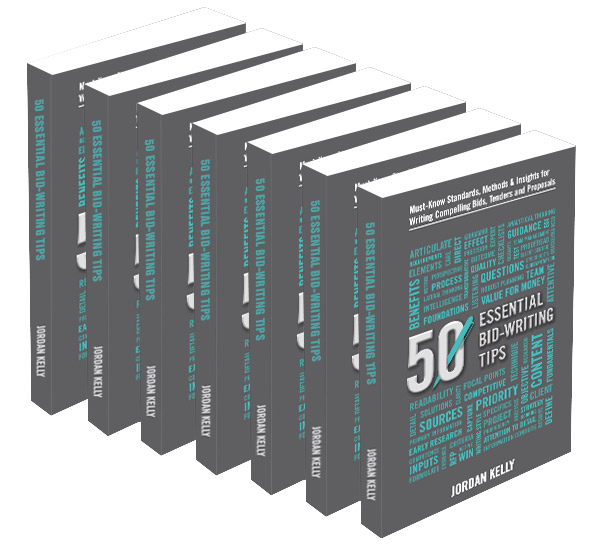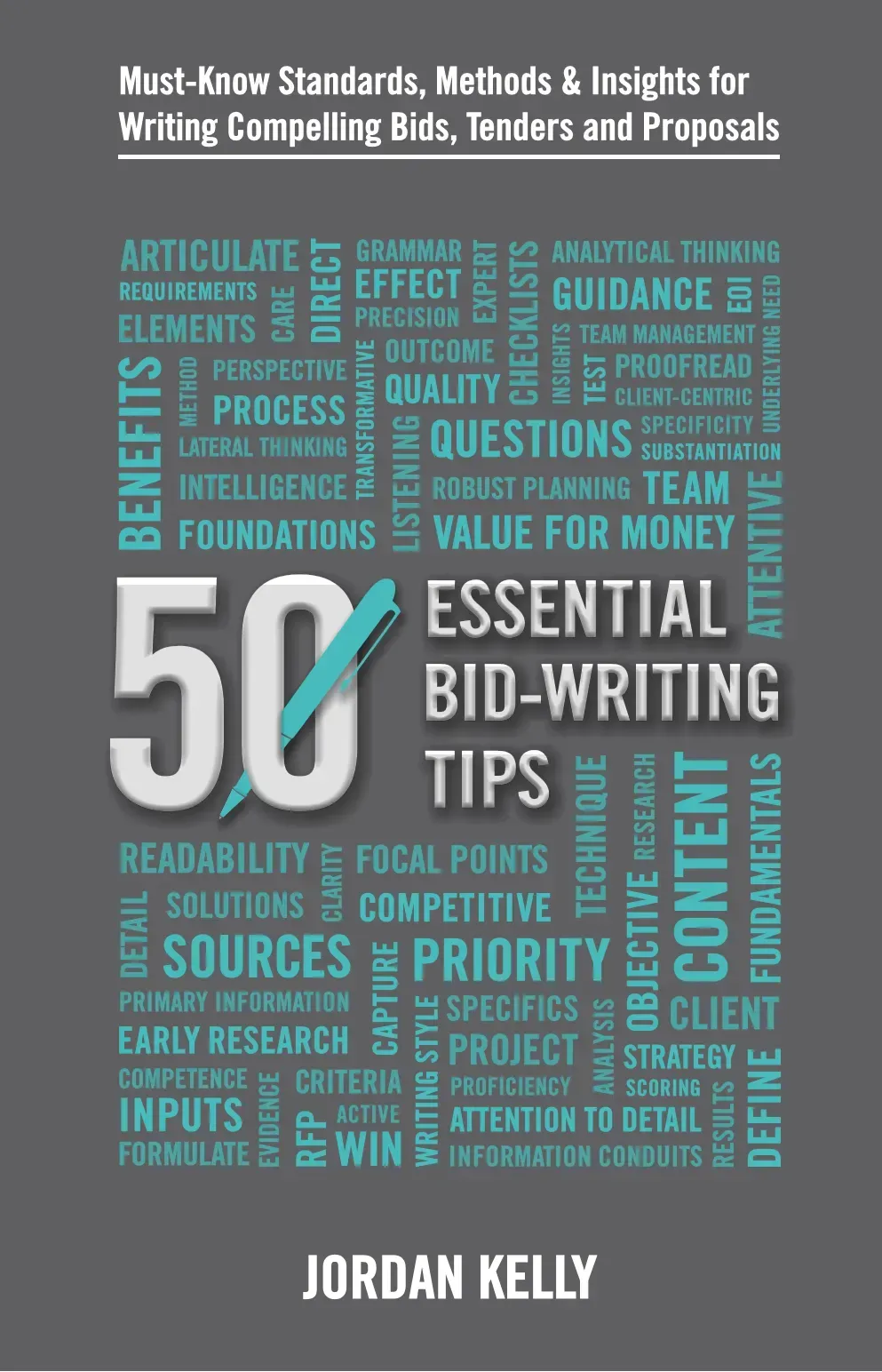CATEGORIES:

Here’s a random grab of quick thought-nuggets from my book, ’50 Essential Bid-Writing Tips‘:
- A clear strategy paves the way for clear articulation.
As in strategy, so in articulation.
Never put pen to paper on an important, high-value submission without first producing a documented bid strategy as a blueprint. And make sure that strategy document is user-friendly.
- Think and write in terms of benefits, more so than features.
Be cognisant of the distinction between benefits and features i.e. the benefit results from the feature.
Join the dots for the client organisation and its evaluation team members; don’t leave them to extrapolate the benefit from the feature for themselves.
Important: This involves thinking deeply about the client’s contract and associated needs.
- Answer the question.
Don’t devolve into evasive writing because you don’t know how to answer a question, or because you have insufficient material to address it with substance.
Have the integrity to correct the problem at its source, seeking out the information you need, or going back into the planning room if your content is lacking as a result of an incomplete or incoherent strategy.
- Don’t let a lack of substantiation erode your credibility.
One of the most common flaws in Expression of Interest (EOI) and Request for Proposal (RFP) responses and, indeed, any other form of bid is the proliferation of “empty” claims – claims made with no attempt to provide specific points of proof or any other form of substantiation.
Largely unintentionally – but very effectively, all the same – these convey an arrogant, salesy tone that screams: “Look, just trust what I’m saying, OK?”
Frequently, bids peppered with these come across as just the reverse: Untrustworthy.
- Process, don’t parrot.
You’ve heard the old adage, “A consultant is someone who asks for your watch, tells you the time and charges you for it.”
A similar concept underlies the common tendency to either repeat verbatim, or to minimally re-phrase, large tracts of the client’s own EOI or RFP documentation. That demonstrates neither any conduct of your own research, nor employment of your own thought processes.
- Be client-focused in both your content and in your writing.
Be client-focused from the beginning. If and whenever possible, use your choice of opening words to let the client know that your answer and information is going to be framed in the context of his interest, his needs, his contract, his priorities, and his concerns.
- Avoid the temptation to slip into sales-speak.
Don’t be tempted to go into marketing copywriter mode. It’s not required.
Worse, you’ll come across as an amateur, if copywriting isn’t your day job.
50 ESSENTIAL BID-WRITING TIPS
Must-Know Standards, Methods & Insights for Writing Compelling Bids, Tenders and Proposals
(Book)
Intentional successful bids are guided by a strategy that is well-researched, customer-centric / client-centric, substance-based, savvily-formulated, and documented in detail.
It is the bid writer's job to ensure that strategy (the primary – but not exclusive – role of which is to address all known selection criteria) is then articulated clearly, consistently and compellingly throughout every section of the proposal.
50 ESSENTIAL BID-WRITING TIPS
Must-Know Standards, Methods & Insights for Writing Compelling Bids, Tenders and Proposals

(Six-Pack)
This 220-page, high-quality paperback production features 50 mini-lessons to ensure both your professional writers and your contributing subject matter experts produce client-centric, substance-based submission content.
Available individually or as a six-pack
(6 for the price of 5).



